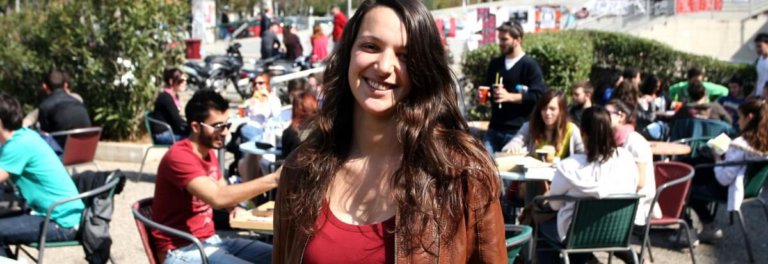This website uses cookies so that we can provide you with the best user experience possible. Cookie information is stored in your browser and performs functions such as recognising you when you return to our website and helping our team to understand which sections of the website you find most interesting and useful.

The Erasmus programme is one of, if not the most popular study abroad programme in Europe. There are many options for students to choose from and one of its most well-known is the Erasmus Mundus Joint Master Degree (EMJMD).
Jointly delivered by an international consortium of higher education institutions, the EMJMD is a prestigious, integrated and international study programme. Its objective is to enhance academic co-operation between the EU and the rest of the world through the internationalisation and collaboration of students, staff curricula and research. The scholarship covers participation costs, including tuition fees and mandatory insurance coverage, travel costs up to €3000/year, settling-in costs (€3000/year) and a monthly living allowance of €1000/month for all scholarship holders – full details can be found here.
Excerpts from my discussion with Erasmus mundus Scholar Olajide @Jamaticulus a couple of weeks ago when we met up in Paris. In this video, he shared tips on how to win the erasmus mundus scholarship.
Full video here…https://t.co/AsupbHiBTc pic.twitter.com/cP0A7YhSPs
— Je ne parle pas francais. (@alle_adeola) July 2, 2019
Students from all over the world can apply for a Master-level study programme of 60, 90 or 120 ECTS credits. It lasts from a minimum of 12 months to a maximum of 24 months. Here’s a quick guide on how to apply:
1. Consult the online EMJMD Catalogue
This catalogue lists the masters offering Erasmus Mundus funded scholarships in the academic year 2019-2020.
You can filter this list by field of study, country, universities or other participating organisations, year of intake, ECTS credits (European Credit Transfer and Accumulation System) and year of selection (the year in which the EMJMD was selected for funding).
For courses starting in 2020, most consortia require applications to be submitted between October 2019 and January 2020. Each summer, a new batch of Master courses are added, so even if you couldn’t find anything last year, you should check the list again this year.
2. Pick three programmes
You can choose up to three different programmes. If you need more information, contact the EMJMD Coordinator – their contact details or a contact form should be on the EMJMD website.
3. Contact and apply to the consortium directly
Each masters pogramme will have its own set of relevant information as well as application and selection procedures. Interested applicants should contact the consortia offering the master courses they have picked directly.
For courses starting in 2020, most consortia require applications to be submitted between October 2019 and January 2020.
For candidates with special needs (learners with disadvantaged backgrounds and fewer opportunities compared to their peers, including people with mental, physical, sensory or other disabilities), check out the “Equity and Inclusion” section of the Erasmus+ Programme Guide and the Coordinator of the EMJMD(s) you are interested in.
4. See whether you’re selected for the scholarship
8 Irish higher education institutions are partners in applications for the 2019 call for Erasmus Mundus Joint Master Degrees. Results will be announced by the European Commission later in the summer. @hea_irl @THEA_Irl @IUAofficial @SineadLucey_IUA #erasmusmundus
— Erasmus+ Ireland (@ErasmusIreland) May 7, 2019
The steps above only completes your application for the course, not for the financial support of the scholarship. Each consortium has their own selection procedures.
Only once you’ve been admitted to the course will you be considered for an EMJMD scholarship. The Coordinators of the EMJMD(s) you’ve applied for will notify you whether you have been selected, rejected or placed on a reserve list. Note that each course will notify applicants at different stages or times.
5. You’ve been accepted – congratulations!
Now it’s time to start applying for insurance and visas. The EMJMD provides mandatory insurance coverage for scholarship recipients. If you’re thinking of getting additional insurance, it would be wise to check that it doesn’t overlap.
As for visas, you are entirely responsible for applying and completing your application, as well as getting it before your studies start. Your course co-ordinator will guide and support you with this application. As a rule, always start applying as soon as possible as it can be a time-consuming process.
Liked this? Then you’ll love…
Scholarships for international graduate students in the US
Postgraduate scholarships for international students in Australia








